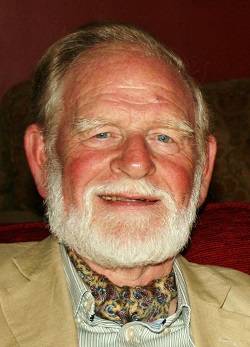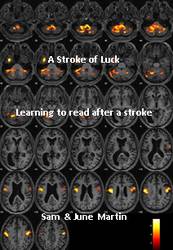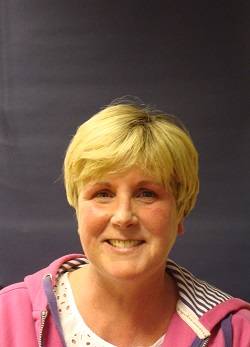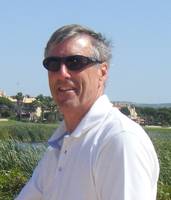
Sam volunteered for PLORAS in 2012 and 2013.
Sam and his wife June have written a FREE e-book about his stroke recovery called 'A Stroke of Luck: Learning to read after a stroke'.
He used an innovative online programme called Read Right to help his recovery.
The therapy was developed by Dr Alex Leff at University College London and supported by the Stroke Association. Extra funding of £10,500 is essential to ensure that such therapies continue to be available to all.
Sam asks that if you are interested in reading the book that you please make a donation to the Stroke Association via this link: Sam & June's A Stroke of Luck.
Download A Stroke of Luck: Learning to read after a stroke (pdf).
This is an extract from the book:
During my visit to Dr Leff in the Institute of Neurology at UCL in March 2012, I was introduced to Louise Lim of the PLORAS team and the aims of their research programme was described to me. It was stressed to me that joining the programme would not benefit me personally but would help their research into how stroke survivors can recover from strokes hence in the longer tern help develop new strategies in treatment for future generations of stroke patients.
As my son whom I visit several times a year, lives near to London, I was able to arrange visits to UCL at mutually convenient times and so I decided to sign up as a participant.
My three visits over the last eighteen months have been very interesting and challenging and a considerable boost to my confidence.
I highly recommend becoming a participant in a research programme such as this, since the more results the researchers can obtain the more the quality of their research will be improved.


Penny returned in 2013 to talk to the team about her experience of taking part.
The article was published in the Different Strokes Summer 2013 Newsletter.
I had a stroke in August 2011, when I was 44 years old. It was devastating. Initially I was not able to talk or communicate in any way and I was very scared.
My friend and my now carer Shirley and my three children, Chris (23), Charlotte (21) and Philippa (18), kept me motivated during my recovery. I have always been an independent person and I was determined that I would still be able to look after my family.
Nearly two years on my communication has improved a great deal and I hope it will continue to do so. I still have aphasia and get dissatisfied when I am talking about my opinions or can't express the essence of who I am, or can't understand or process information.
I heard about the research project Predicting Language Outcome and Recovery After Stroke(PLORAS) through the Different Strokes Facebook page. The research aims to provide future stroke survivors with aphasia with predictions about how their language is likely to recover, based on how others with the same type of stroke have improved over time.
I volunteered to take part and was invited to the Wellcome Trust Centre for Neuroimaging, which is part of University College London, in Central London. The day involved having a 15-minute Magnetic Resonance Imaging (MRI) brain scan and doing some language tests.
It was a really positive experience. The language tests were tiring but I felt well looked-after. I was able to look at the images of my brain, which was fascinating. I enjoyed getting out and a change to the usual routine.
It can feel isolating being a young stroke survivor with aphasia who looks 'well' on the outside. Taking part in research was a way to make my mark and to contribute to the understanding of stroke and aphasia. My advice to other stroke survivors interested in volunteering for research is to go for it - more people taking part means more research outcomes in the future.
Chris volunteered for the PLORAS study in 2010.
On the morning of 24 January 2003 I had two strokes. I had no feeling in my right side from my arm to my toes and I could not speak at all. About two or three days after my strokes when the orderly came round with the drinks trolley I managed to say "tea" because it was the only thing I could remember - which is ridiculous as I don't like tea.
This carried on for some time. I was in hospital for about three weeks and I started therapy for speech and writing. My leg and arms came back quite quickly but my speech was very limited for three months or so and gradually improved over time. I had speech and language therapy for about two years but my writing is terrible. My language is alright now as long as someone starts the conversation. I can respond to others' comments and sometimes I can respond in some way that gives the conversation some move on. If there are more than three or four people present I can talk only in small comments because I have to work out what I'm going to say and I can't always get my point in. Although I can't do all the things I used to be able to do I have been able to return to work for three days a week at a company that deals with spare parts for aircraft.
It is encouraging to know about longterm speech recovery from the research, particularly for those who suffer a stroke when quite young. Although it might take a long time, there is hope that they can get their speech back again to something like "normal".
The research has helped me to focus my time and realise I can get better with time.

Posts from our Facebook page from PLORAS volunteers:
" I went up to Queens Square on July 4th to take part in the study, unfortunately an X-ray showed that I had metal clips securing the mesh from a hernia repair I had ten years ago, so having the fMRI was ruled out. I did complete the language part of the assessment, and still had an enjoyable day. Zula was the person who met me and carried out the study, a lovely lady, easy to talk to and made you feel at ease.
" Came down to london on thursday 8th august to undergo an MRI scan followed by the assessment. This was under the guidance of Rachel Browne. It was an enjoyable and informative day,and nice to see whats going on behind the scenes in a study such as this. Having undergone a couple of NeuroPsychological tests in the preceeding 14 mths (the last being about 9 mths ago),i was pleasantly surprised at how i coped with some sections of the assesssment having had substantial problems particularly with short term / working memory, distractability and concentration to name a few,following a right internal carotid artery dissection,spitting out multiple embolii which caused a stroke in the Right frontal lobe,MCA territory. I think it showed me that even 21 mths post stroke and with an ongoing occluded right carotid artery ,there are still improvements taking place,which i might not realise are occurring on a day by day basis,but when tested,and measured against earlier assessments,show without doubt that progress is still being made. So many thanks for being able to participate and good luck with the study!
 Close
Close

